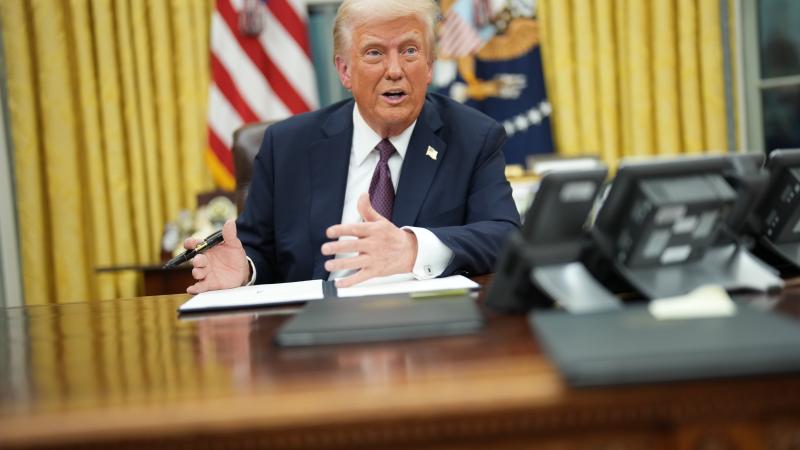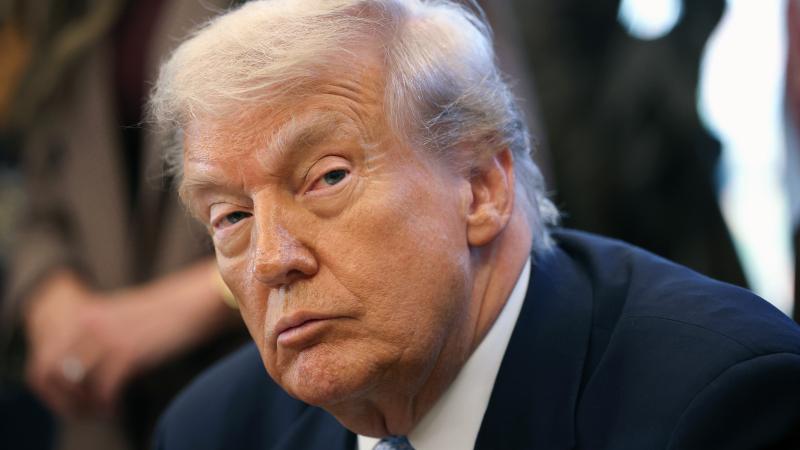White House considering blocking military pension funds from being invested in Chinese defense firms
The investment board for federal pensioners had planned to proceed with plan despite warnings from lawmakers and former Navy boss.
The White House is considering blocking military pension funds from being invested in Chinese defense firms, a senior administration official confirmed to Just the News on Friday.
The investment board for federal pensioners had planned to proceed with the plan, despite warnings from a former Navy secretary and lawmakers.
"Discussions are ongoing, this has been considered for awhile, and the specifics are not yet public," the senior Trump administration said. "No decisions have been made at this time, contrary to what other folks are saying."
Just the News reported last month that the U.S. is about to embark on a new effort that could benefit the Chinese economy, including its defense-industrial complex, through investments of the retirement funds of federal and U.S. military retirees.
The main actor in the behind-the-scenes pension issue is the five-person Federal Retirement Thrift Investment Board (FRTIB) that administers the Federal Thrift Savings Plan (TSP), the 401(k) for federal workers. It serves nearly 6 million current and retired military and civilian federal employees and controls tens-of-billions of dollars.
In November 2017, FRTIB Chairman Michael Kennedy, who is managing director of Korn/Ferry International, and his board decided to change $50 billion in U.S. government retirement funds to a new global investment index known as the MSCI ACWI Index.
The board hopes the change allows for greater returns on investments in emerging Asian markets, but critics warn the index would allow investments in adversarial nation-owned companies in Russia and China.
The board is in the final stages of completing that transition this month, despite repeated and vocal objections ranging from former Navy Secretary Richard Spencer, former House Speaker Newt Gingrich and a bipartisan group of lawmakers led by Sens. Marco Rubio, R-Fla., and Jeanne Shaheen, D-N.H.
In their October letter to the pension board, Rubio and Shaheen wrote: "This decision would effectively invest the retirement savings of America’s civil servants and military personnel in constituent companies of the ACWI ex-US IMI that assist in the Chinese government’s military activities, espionage, and human rights abuses, as well as many other Chinese companies that lack basic financial transparency."














